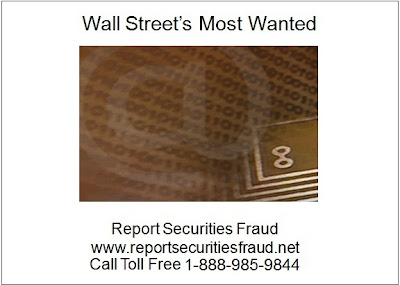Washington, D.C., April 29, 2013 — The Securities and Exchange Commission today charged that the City of Victorville, Calif., a city official, the Southern California Logistics Airport Authority, and Kinsell, Newcomb & DeDios (KND), the underwriter of the Airport Authority’s bonds, defrauded investors by inflating valuations of property securing an April 2008 municipal bond offering.
Victorville Assistant City Manager and former Director of Economic Development Keith C. Metzler, KND owner J. Jeffrey Kinsell, and KND Vice President Janees L. Williams were responsible for false and misleading statements made in the Airport Authority’s 2008 bond offering, the SEC alleged. It also charged that KND, working through a related party, misused more than $2.7 million of bond proceeds to keep itself afloat.
“Financing redevelopment projects by selling municipal bonds based on inflated valuations violates the public trust as well as the antifraud provisions of the federal securities laws,” said George S. Canellos, Co-Director of the SEC’s Division of Enforcement. “Public officials have the same obligation as corporate officials to tell the truth to their investors.”
Elaine C. Greenberg, Chief of the SEC’s Municipal Securities and Public Pensions Unit, said, “Investors are entitled to full disclosure of material financial arrangements entered into by related parties. Underwriters who secretly line their own pockets by taking unauthorized fees will be held accountable.”
The SEC alleges the Airport Authority, which is controlled by the City of Victorville, undertook a variety of redevelopment projects, including the construction of four airplane hangars on a former Air Force base. It financed the projects by issuing tax increment bonds, which are solely secured by and repaid from property-tax increases attributable to increases in the assessed value of property in the redevelopment project area.
According to the SEC’s complaint filed in U.S. District Court for the Central District of California, by April 2008, the Airport Authority was forced to refinance part of the debt incurred to construct the hangars, and other projects, by issuing additional bonds. The principal amount of the new bond issue was partly based on Metzler, Williams, and Kinsell using a $65 million valuation for the airplane hangars even though they knew the county assessor valued the hangars at less than half that amount. The inflated figure allowed the Airport Authority to issue substantially more bonds and raise more money than it otherwise would have. It also meant that investors were given false information about the value of the security available to repay them.
In addition, the SEC’s investigation found that Kinsell, KND, and another of his companies misappropriated more than $2.7 million in bond proceeds that were supposed to be used to build airplane hangars for the Airport Authority. According to the SEC’s complaint, the scheme began when Kinsell learned of allegations that the contractor building the hangars had likely diverted bond proceeds for his own personal use. When the contractor was removed, Kinsell stepped in to oversee the hangar project through another company he owned, KND Affiliates, LLC, even though Kinsell had no construction experience.
The SEC alleges that the Airport Authority loaned KND Affiliates more than $60 million in bond proceeds for the hangar project and agreed that as compensation for the project, KND Affiliates would receive a construction management fee of two percent of the remaining cost of construction. However, Kinsell and KND Affiliates took an additional $450,000 in unauthorized fees to oversee the construction and took $2.3 million in fees that the Airport Authority was unaware of and never agreed to, purportedly as compensation to “manage” the hangars. The SEC alleges that Kinsell and KND Affiliates hid these fees from the Airport Authority representatives and from the auditors who reviewed KND Affiliates’ books and records.
The SEC’s complaint alleges that the Airport Authority, Kinsell, KND, and KND Affiliates violated the antifraud provisions of U.S. securities laws and that KND violated 15B(c)(1) of the Exchange Act and Municipal Securities Rulemaking Board Rules G-17, G-27 and G-32(a)(iii)(A)(2). The complaint also alleges that Victorville, Metzler, KND, Kinsell, and Williams aided and abetted various violations. The SEC is seeking the return of ill-gotten gains with prejudgment interest, financial penalties, and permanent injunctions against all of the defendants, as well as the return of ill-gotten gains from relief defendant KND Holdings, the parent company of KND.























